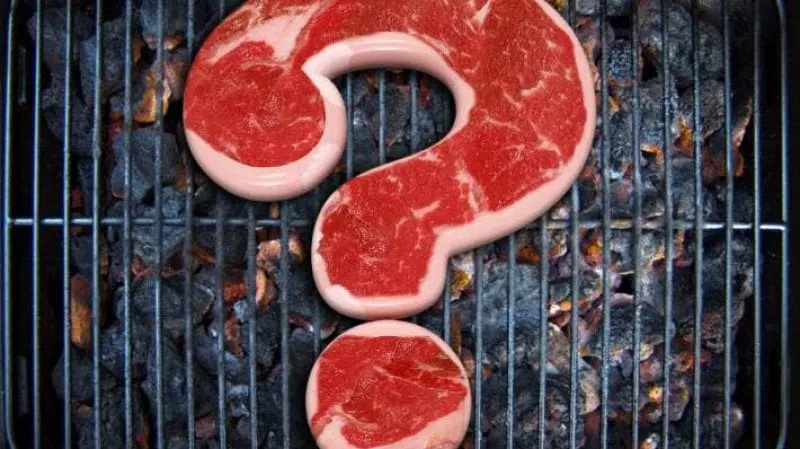Lab-based foods are poised to change what we eat
Lab-based foods are poised to change what we eat — but ethical and regulatory hurdles lie ahead


The forces driving the synthesized meat movement are practical. Modern agricultural systems are helping destabilize Earth’s climate and ecosystems, while extreme weather events add immense uncertainty to farming and ranching.
Scientists at Oxford and the University of Amsterdam have estimated that cultured meat would require 7 to 45 percent less energy, occupy 99 percent less land, and produce 78 to 96 percent less greenhouse gas than conventional animals farmed for consumption.
But once we’re able to synthesize meat, we’ll face a novel regulatory challenge.
Theoretically, we’ll have the capability to culture meat from any animal, which means that some people will choose to culture and consume animals we’d never consider eating today because of their high level of intelligence, like dolphins, chimpanzees, and elephants.
Someone, somewhere, might just attempt to make cocker spaniel kebabs, which, technically, will fall outside the jurisdiction of current regulatory agencies.
A ban on certain synthetic meats might go into effect, but a black market and an underground speakeasy scene for thrill-seeking diners would potentially emerge.
This is an excerpt. Read the original post here.

 | Videos | More... |

Video: Nuclear energy will destroy us? Global warming is an existential threat? Chemicals are massacring bees? Donate to the Green Industrial Complex!
 | Bees & Pollinators | More... |

GLP podcast: Science journalism is a mess. Here’s how to fix it

Mosquito massacre: Can we safely tackle malaria with a CRISPR gene drive?

Are we facing an ‘Insect Apocalypse’ caused by ‘intensive, industrial’ farming and agricultural chemicals? The media say yes; Science says ‘no’
 | Infographics | More... |

Infographic: Global regulatory and health research agencies on whether glyphosate causes cancer
 | GMO FAQs | More... |

Why is there controversy over GMO foods but not GMO drugs?

How are GMOs labeled around the world?

How does genetic engineering differ from conventional breeding?
 | GLP Profiles | More... |

Alex Jones: Right-wing conspiracy theorist stokes fear of GMOs, pesticides to sell ‘health supplements’




 Viewpoint — Fact checking MAHA mythmakers: How wellness influencers and RFK, Jr. undermine American science and health
Viewpoint — Fact checking MAHA mythmakers: How wellness influencers and RFK, Jr. undermine American science and health Viewpoint: Video — Big Solar is gobbling up productive agricultural land and hurting farmers yet providing little energy or sustainabilty gains
Viewpoint: Video — Big Solar is gobbling up productive agricultural land and hurting farmers yet providing little energy or sustainabilty gains Trust issues: What happens when therapists use ChatGPT?
Trust issues: What happens when therapists use ChatGPT? Fighting deforestation with CO2: Biotechnology breakthrough creates sustainable palm oil alternative for cosmetics
Fighting deforestation with CO2: Biotechnology breakthrough creates sustainable palm oil alternative for cosmetics California, Washington, Oregon forge immunization alliance to safeguard vaccine access against federal undermining
California, Washington, Oregon forge immunization alliance to safeguard vaccine access against federal undermining 30-year-old tomato line shows genetic resistance to devastating virus
30-year-old tomato line shows genetic resistance to devastating virus The free-range chicken dilemma: Better for birds, but with substantial costs
The free-range chicken dilemma: Better for birds, but with substantial costs ‘You have to treat the brain first’: Rethinking chronic pain with Sanjay Gupta
‘You have to treat the brain first’: Rethinking chronic pain with Sanjay Gupta
